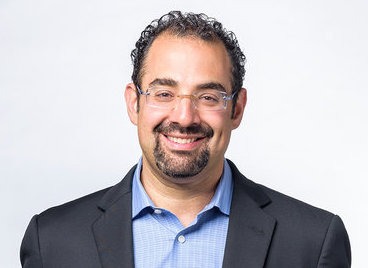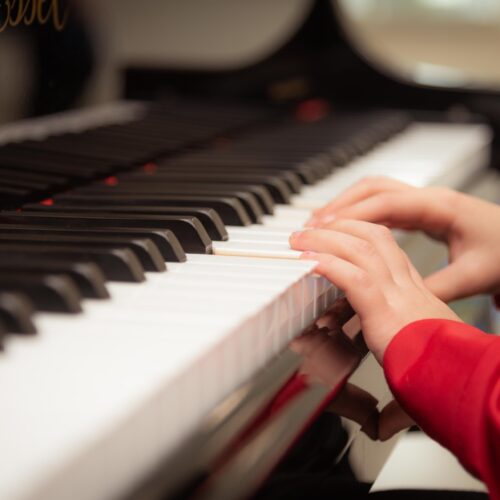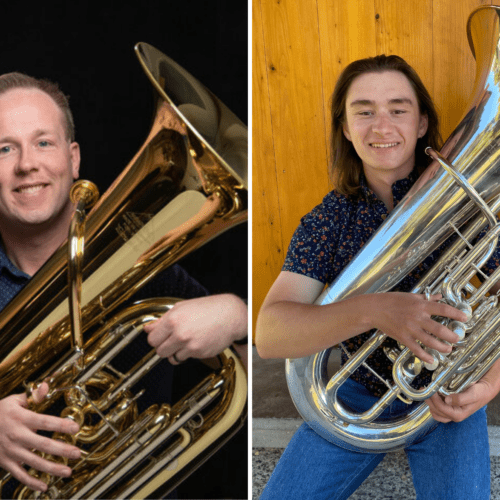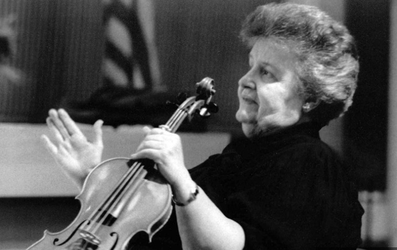
Passing the Baton: From Isbin And Hauser To Bellingham Symphony Music Director Yaniv Attar

Listen
Conducting a symphony orchestra is hard. It takes a special set of skills to bring out just the right sound from a stage full of players. Even after Bellingham Symphony’s Music Director Yaniv Attar finished his studies with legendary classical guitarist Sharon Isbin, he found that she still had a thing or two to teach him about conducting.
“She’s really demanding,” Attar recalls, remembering his guitar lessons with Isbin at Juilliard. “She demands so much from her students. Every lesson, you’re on edge, because you need to be your best. You need to, in a way, prove yourself.”
Attar loves the sound of the orchestra. He says if his first instrument had been a violin, he might have chosen a career as an orchestral musician, but it was the guitar that he built his musical skills on, and it was the guitar that brought this young conductor back together with Isbin. It was at his audition for the Bellingham job. The orchestra had booked Isbin as his soloist.
“And all of a sudden,” Attar recalls, “when I was conducting the audition concert, I mean, she was amazing. She really treated me like a colleague, she helped me, she guided me, in a way she kept teaching me ten years later, through my audition.”
Isbin’s example will be top of mind for Attar when the Bellingham Symphony returns to the concert hall this Fall. He is planning to solo and conduct for the first concert of the season.
“Watching her work with an orchestra is fascinating, “Attar says,”because you don’t feel like she’s there saying, ‘Oh they’re accompanying me.’ You really feel she’s a chamber musician playing with everybody. I still remember her playing the concerto. It was the first time I conducted her and she knew everything that was going on in the orchestra. When the trumpet solo was about to come in she would look back. Or the English Horn solo in the famous Aranjuez Concerto. When he finished his solo she turned around and gave him the ‘thumbs up.’ That kind of collaborative atmosphere in rehearsal is something that I carry in rehearsals today too.”
Attar found his conducting mentor at McGill University: the Austrian maestro Alexis Hauser. He says, “It was always amazing to see him working with orchestras, being there, and facilitating between everyone, enabling them to hear each other and making them do their best as musicians.
“He trained me to train and orchestra to train themselves, basically. To be less dependent on us as conductors. Because when musicians listen to themselves, and do things by ear, and look at each other, that’s always the best result.”
It’s an approach that might have made Toscanini faint (or scream!), but as Attar notes, times are changing.
“You see it more and more. And that’s why I think, finally, today you see a lot more women conductors. Back then men were not able to see women in leadership positions, and I still think today it’s not enough.”
Whenever Attar has the opportunity to mentor and work with an assistant conductor, he continues to enact the philosophy of his mentor, Alexis Hauser. According to Attar, that philosophy was this: “Everybody has different bodies and different ways to communicate. He would really encourage you to find your own way. Your job is like a sculptor. You are shaping the sound. You are shaping the interpretation. But you are very much dependent on what’s coming at you.”
During the pandemic, Bellingham Symphony’s website served as a music teacher in the city’s schools. When there’s not a pandemic, says Attar, the orchestra sends its guest soloists in person. “He or she plays for the kids, and they get to talk to the soloists, ask questions. I mean, we bring world-class soloists here.
“I remember we had a cellist, Amit Peled, who is internationally an amazing cellist. He spoke to the kids and he read a book that he wrote to them. What a wonderful experience for those kids!
“After he played, two parents asked the music teacher at the school for a cello teacher. So, there you go. It’s great that we can provide that.”
Passing the Baton is a series on music mentors from NWPB Classical. See more in the series here.
Related Stories:

Passing the Baton: Teachers And Their Music
Freshly sharpened pencils. New spiral notebooks. Markings of a new school year and a new opportunity to fill your brain with math and English and music. Many composers led double lives as teachers, and some of the music we remember best originated in the classroom.

Passing The Baton: WSU Tuba Professor Dr. Chris Dickey And Student Tim Schrader
When a student becomes an award-winner, you congratulate the teacher, right? A teacher like Dr. Chris Dickey, assistant professor of tuba at WSU. His student earned this year’s first prize in European Music at the Charleston International Music Competition. The student is WSU sophomore Tim Schrader.

Passing The Baton: Dorothy DeLay
“I promise you, children become what they are told they are.” The words of the first teacher to be awarded the National Medal of the Arts, Dorothy DeLay. Her violin students numbered in the hundreds, and they include some of music’s biggest names: Midori, Nigel Kennedy, Sarah Chang, Nadja Salerno-Sonnenberg, Anne Akiko Meyers, Gil Shaham and Itzhak Perlman.















